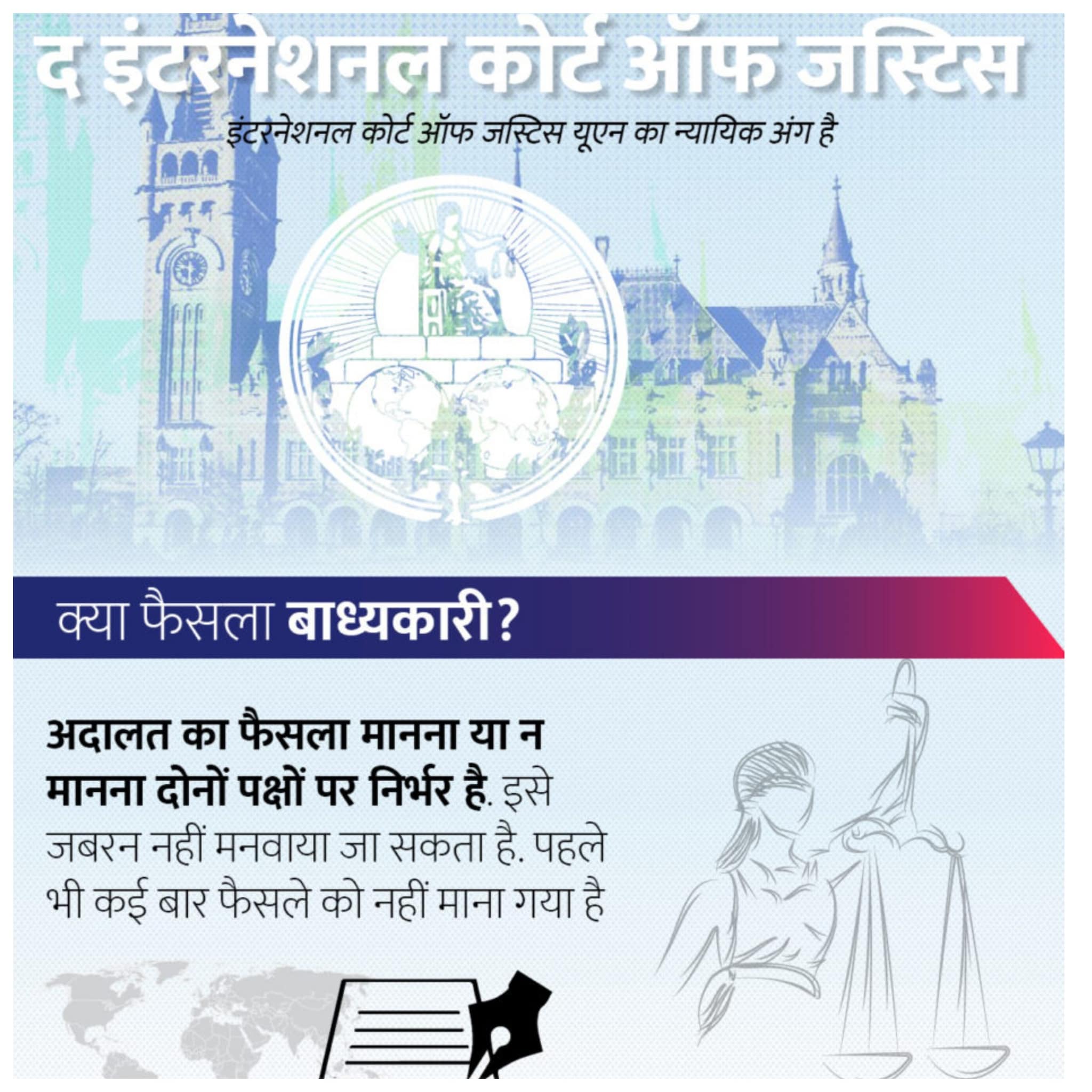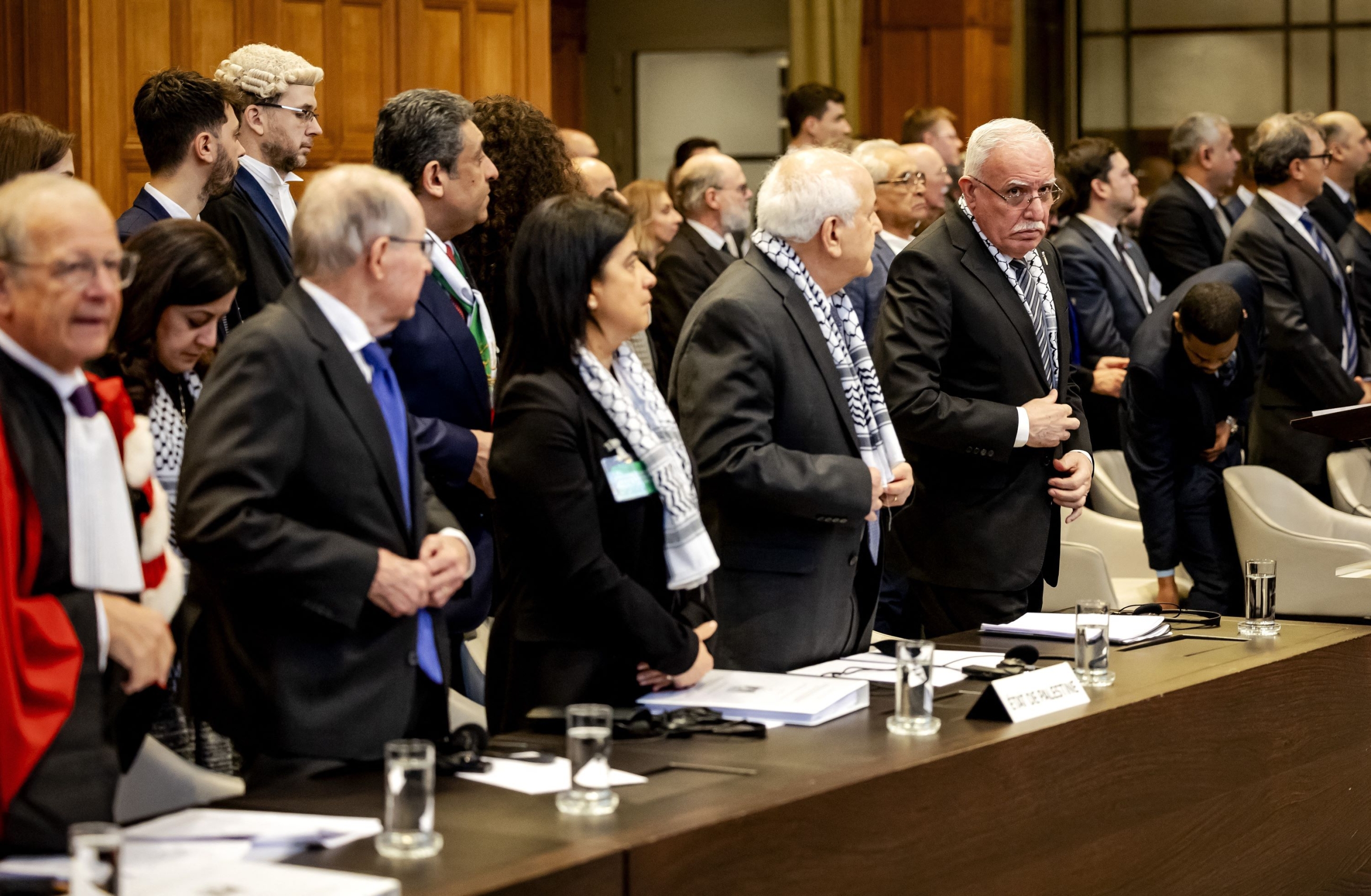The ICJ was established by the United Nations Charter in 1945.Its main function is to settle legal disputes between countries.The. Africa has filed a petition against Israel in the ICJ.
International Court of Justice : The International Court of Justice (ICJ) is currently in discussion regarding the hearing against Israel. South Africa has filed a petition against Israel in the ICJ. The ICJ on Thursday began hearing on South Africa’s petition to stop Israel’s military operation in Rafah, the southern city of Gaza. South Africa has alleged that Israel’s military action in the war against Hamas in Gaza is tantamount to genocide. This is the fourth time that South Africa has requested the ICJ to adopt emergency measures.
ICJ is part of UN
The International Court of Justice (ICJ) is part of the United Nations and was established by the United Nations Charter in 1945 and began functioning in April 1946. Its main function is to settle legal disputes between countries. Apart from this, the work of ICJ is also to give advice on legal questions referred by the United Nations and its specialized agencies. It is also known as the World Court. Its headquarters are located in The Hague, Netherlands and its decisions are binding and final. The official working languages of the ICJ are English and French.
What is the structure of ICJ?
The International Court of Justice consists of 15 judges, who are elected by the United Nations General Assembly and the Security Council for nine-year terms. Both these bodies vote at the same time, but separately. To be elected, a candidate must get absolute majority in both the bodies. To ensure continuity in the International Court of Justice, one-third of the total members of the Court are elected every three years. A judge may be re-elected, but may not serve more than two terms. The ICJ is assisted by a registry. The Registry is the permanent administrative secretariat of the ICJ.
Judges are taken from these areas
Three from 1 Africa
2 two from Latin America and the Caribbean countries
3 three from asia
4 from Western Europe and five from other countries
5 Two from Eastern Europe

They are not representatives of the government
Unlike other bodies of international organizations, the International Court of Justice does not have government representatives. The members of the court are independent judges, who before assuming office have to take an oath that they will use their powers impartially and with a clear conscience. To maintain the independence of the ICJ judges, no member may be dismissed unless the other members are unanimous that he or she no longer meets the required conditions. Till now no judge has been removed from the post.
how does it work
ICJ’s job is to settle controversial cases and provide advisory Jurisdiction, Contentious jurisdiction concerns disputes between countries that have consented to the jurisdiction of the ICJ. Consultant Jurisdiction concerns legal questions referred to the ICJ by the United Nations General Assembly, the Security Council or specialized agencies of the United Nations. ICJ decisions only Are binding in cases of disputed jurisdiction.

What are the functions of ICJ?
The ICJ has jurisdiction over disputes related to the interpretation and application of international treaties. The main function of ICJ is to resolve legal disputes between countries. Countries can bring cases before the Court to resolve disputes over issues such as territory, maritime boundaries, interpretation of treaties and human rights. The Court’s decisions are final and binding, and countries are obliged to follow them.
Indian judge in ICJ
Dalveer Bhandari (Member since 27 April 2012)
Raghunandan Swaroop Pathak (1989-1991)
Nagendra Singh (1973- 1988)
Sir Benegal Rao (1952–1953)
